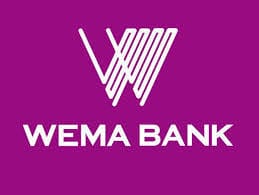Business
Wema Bank: Rewarding Investor Confidence.

Wema Bank: Rewarding Investor Confidence.
In December 2023, Wema Bank started a substantial rights issue, offering 8,572,103,573 ordinary shares at N4.66 per share, based on a two-for-three ratio for existing shareholders as of September 28, 2023.
The surge in Wema Bank’s share prices following the rights issue in December suggests a boost in investor confidence.
This positive sentiment is likely fueled by expectations surrounding the promised utilization of proceeds, the bank’s past performance, and optimistic outlook.
Back story
On September 28, 2023, the closing share price stood at N4.85. The rights issue, priced at N4.66 per share, presented a discount of N0.19 per share or 3.92%.
By the close of trading on December 29, 2023, the share price had increased to N5.60, marking an increase of N0.94 per share or 20.17%.
The upward trajectory continued, with the share price reaching N12 by the close of trading on Friday, January 19, 2024, marking the highest level since 2018.
This outstanding performance resulted in a year-to-date gain of 114%, surpassing the 2023 full-year year-to-date gain of 43.59%.
Generally, while short-term gains are promising, which may be attributed in part to a shift towards specific asset classes with relatively better returns, such as investors flocking to equity assets to counter negative real return, a critical analysis of the bank’s sustainability and its ability to uphold and extend this positive momentum becomes imperative.
More insights
The sustainability of this momentum can be tied to how effectively the bank deploys the proceeds from the rights issue.
The bank had explicitly stated in the rights issue circular its intention to allocate 89.82% of the proceeds from the rights issue towards expanding its loan portfolio, specifically targeting the retail, commercial, and SME sectors.
The bank should adhere to this commitment and execute the planned deployment to realize the anticipated benefits and uphold investor confidence.
One anticipated key impact of the rights issue deployment is the enhancement of Wema Bank’s relatively small franchise within the banking sector.
Currently, the bank’s total assets constitute only 2% of both the banking system assets and loans and advances to customers as at the end of Q3 2023.
More so, the bank’s profitability is observed to be below that of its peers. This is evident in its 9M 2023 reported pre-tax profit of N22.117 billion, accounting for approximately 1% of the listed banks’ pre-tax profit for the first nine months of 2023.
The anticipated expansion in the bank’s loan portfolio is expected to have a positive impact on its financial metrics, particularly on net interest income and net interest margin.
The decline in net interest margin by 8.82% year-on-year to 6.2% in the 9M of 2023 highlights the current challenge.
Furthermore, a sincere deployment of the rights issue proceeds is expected to strengthen the bank’s balance sheet, enhance shareholders’ fund and have a positive effect on the bank’s regulatory capital ratios.
In alignment with this perspective, Fitch Ratings, in its June 2023 report, explicitly affirmed that the rights issue, when completed, would exert a significant positive impact on the bank’s regulatory capital ratios.
Since the landmark 2005 bank recapitalization in Nigeria, which raised the minimum paid-up capital from N2 billion to N25 billion, the landscape of Nigerian banks has evolved significantly.
As of the end of the third quarter in 2023, none of the banks listed on the Nigeria Exchange Limited (NGX) had attained the N25 billion share capital threshold, despite boasting substantial shareholders’ funds.
Among them, FBNH led with a share capital of N17.948 billion, followed closely by Access Holding Company at N17.773 billion.
In this context, Wema Bank’s current share capital of N6.429 billion and shareholders’ fund of N118.558 billion would potentially increase to about N46 billion and N159 billion, respectively, with fully realized proceeds.
This improvement in Tier-1 capital would boost the capital adequacy ratio, currently at 13.31%.
However, there are notable downside risks that demand the bank’s close attention.
The persistent volatility in the exchange rate poses a significant challenge, as it has the potential to erode both the real and dollar values of the capital requirements.
What you should know
The expansion in the loan portfolio resulting from the rights issue, particularly in an elevated risk environment characterized by Naira devaluation, high inflation, and interest rates, may lead to increased loan impairment losses and a rise in the cost of funds.
The bank’s cost of funds has already increased by 17% YoY to 5.4%, primarily attributed to a hike in the Monetary Policy Rate (MPR).
Albeit the overarching goal remains investor returns and increased shareholders’ value. While an initial dip in return on average equity is possible due to increased share outstanding without commensurate growth in earnings, it is expected that the bank will improve its earnings, starting with a critical examination of its cost structure.
The bank’s cost-to-income ratio, although showing a 13% reduction to 71.11% in 9M 2023, remains relatively high compared to industry standards, standing as one of the highest in the banking sector.
The bank’s share price presents an attractive investment opportunity, offering a favorable return with an impressive industry-wise dividend yield of 5.36% and an inflation-protected earning yield of 31.50%.
Additionally, the stock appears relatively undervalued, evident in its relatively low trailing earnings multiple of 3.17x.
Given the heightened investor confidence, it is necessary for the bank to consider rewarding stakeholders. A sustained focus on cost optimization, effective risk management, and delivering on the promised utilization of funds are imperative.
These measures will not only strengthen investor confidence but also contribute to continuous growth, increased shareholder value, and long-term success.













